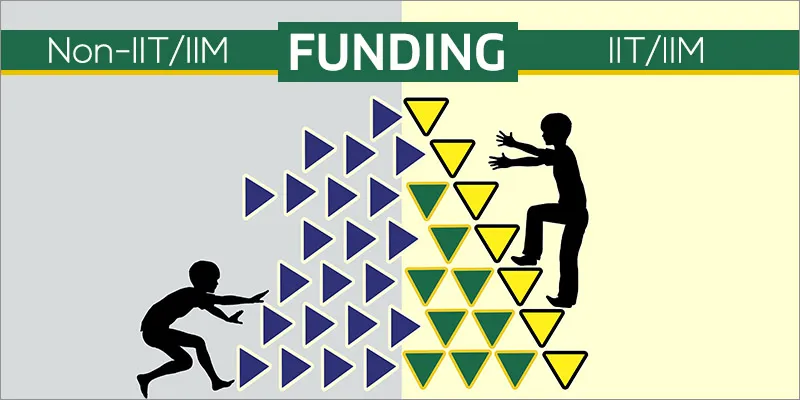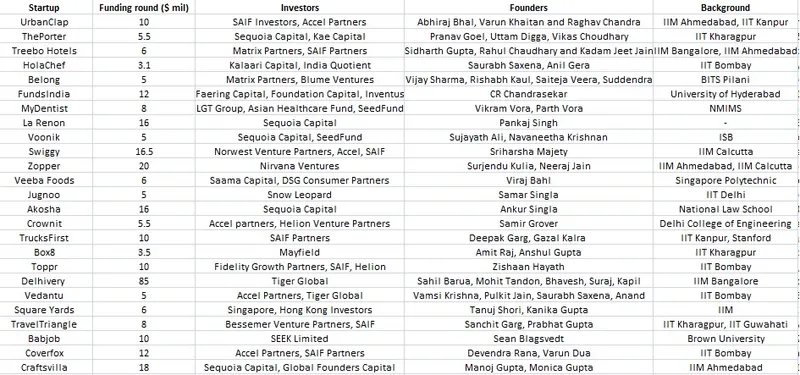60 per cent of Series A companies in India have founders from IIT/IIM and all of them are males

This has always been a topic of discussion. Why are investors inclined towards startups founded by entrepreneurs from IITs and IIMs? And why are there so few women in tech? And this isn’t just in India; it’s a globally observed trend.
We did a survey back in 2014, in which we looked at all the deals in India over the previous three years to see if we could find a co-relation. The results were clear: a third of the funded companies had founders from pedigree institutes. The questions have remained and very recently, a tweet by Instamojo founder Sampad Swain fuelled a long winded discussion about the same.
In our previous study, we looked at deals in early stage start-ups, but this time around, we decided to look at deals of about $5 million. We looked at the last 25 deals in the past couple of months, and noted that the numbers were even more skewed. 60% of the 25 deals are to founders that hail from IITs and IIMs. And only two of the 25 companies have a woman co-founder.

Some of the key trends about this study are:
- There is a healthy mix of all types of investors in the above study of 25 companies. Despite this, it points to a bias towards companies started by IIT and IIM founders.
- There is not a single company with only women at the helm (a couple of companies have a woman in the founding team)
- Investments into companies started by people not from IIT and IIM typically have experienced founders who have been there, done that. These entrepreneurs have a vast amount of experience in the domain, or have previously started up. Sequoia has invested in a quite a few such start-ups.
- We saw the IIMs to be at the forefront but now the IITs have caught up. Start-ups from IIT-Bombay, IIT-Delhi, and IIT-Kharagpur seem to be leading the pack. IIT-Bombay has been pivotal in the making of Powai Valley.
There are various reasons for this which can be pointed out:
- Investors tend to make safe bets and pedigree universities are always helpful. If there are two equivalent companies, with one team having a pedigree, they are more likely to get funded.
- Founders from these universities tend to have good networks, which help in the early stages in allowing these entrepreneurs make deeper inroads.
- Since these entrepreneurs have more exposure, many times, companies coming from pedigree universities are more mature and are likely to succeed.
In spite of these reasons, the skew is very strong and the fact that there are hardly any women is disturbing. The skew is only getting wider. So it is about time the issues at the bottom of these trends are tackled. We, at YourStory, started HerStory for this reason and we’d appreciate more dialogue on the same line. Do drop in your comments and also links to any research that might have been carried out in this direction.







